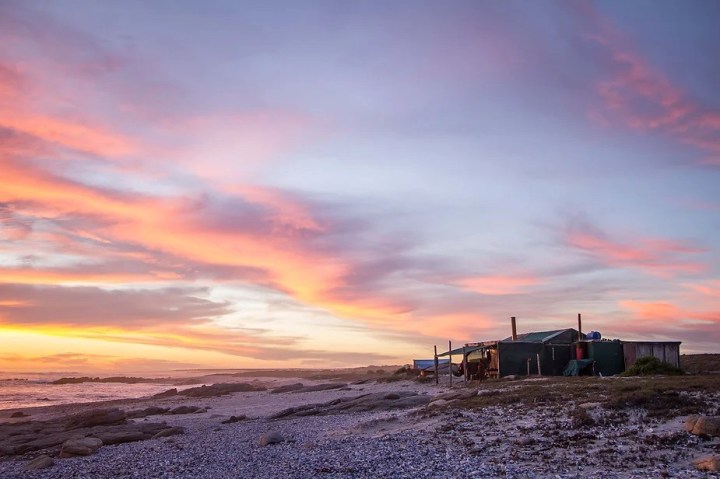GROUNDUP
DMRE rejects West Coast prospecting bid over lack of environmental impact planning

The department's refusal of an environmental application for prospecting signals a shift towards more rigorous scrutiny of mining and prospecting applications to protect the region's pristine environment.
Environmental authorisation for a prospecting application to search for heavy minerals, kaolin and gemstones in one of the few relatively pristine areas of the West Coast has been refused by the Department of Mineral Resources and Energy (DMRE).
This unexpected decision has surprised and pleased West Coast environmental activists. They say they hope that it “signals a shift” by the DMRE towards more rigorous scrutiny of the environmental and other legislative requirements for mining and prospecting applications.
However, the prospecting company, Limpopo-based Nekwana Trading Enterprise (Pty) Ltd, is questioning the DMRE’s decision and the adjudication process.
Director Nekwana Seroka told GroundUp that the company had not received any directive from the department and the Promotion of Administrative Justice Act process had not been followed.
He also wondered whether unnamed “external forces” had played any role in the decision, but he did not elaborate.
The prospecting application — one of two targeting the same farm, Karoetjies Kop 150, on the border between the Western Cape and Northern Cape provinces — was submitted in April last year.
Nekwana planned to prospect for sillimanite, monazite, manganese ore, leucoxene, diamonds, kaolin and garnets.
In its documentation, the company said prospecting work would include drilling 12 boreholes to test target areas identified through mapping, and geophysical and geochemical surveys. A further 10 or so boreholes might be drilled, depending on initial results.
In May this year, Nekwana’s environmental consultants TPR Mining Resources (Pty) Ltd submitted a final Basic Assessment Report (BAR) and proposed Environmental Management Programme (EMP) for the prospecting operations, as legally required.
A Basic Assessment Report is a low-level of environmental assessment that applies to small-scale activities, the impacts of which are generally known and can be easily managed. While less than a full EIA (Environmental Impact Assessment), a BAR still requires public notice and participation; consideration of the potential environmental impacts; assessment of possible mitigation measures; and an assessment of whether there are any significant issues or impacts that might require further investigation.
Refusal
In the DMRE’s letter of decision, signed 31 August by Western Cape Regional Manager Mineral Regulation, the department said it was not satisfied that the BAR and EMP for Nekwana’s application complied sufficiently with the National Environmental Management Act (Nema) and associated EIA Regulations.
Pointing out that it had granted three extensions to the deadline for Nekwana to submit a BAR, the department said it had reviewed the report and found that several significant issues had not been sufficiently addressed.
The layout plan provided did not show the exact position of the prospecting drill holes, access roads to the sites, and other required infrastructure. “It is therefore impossible to describe the environment, [and] assess and mitigate the impacts of the proposed prospecting activities and access tracks to the site if the exact location of the proposed drill holes and access tracks are not known.”
Also, the specialist terrestrial ecology report had only provided background information on ecosystems, and on-site survey results had not provided enough information to delineate ecologically sensitive “no-go” areas.
A further point was that Heritage Western Cape had informed the applicant that an adequate Heritage Impact Assessment had to be submitted, with specific reference to potential archaeological and palaeontological impacts. But only a desktop Palaeontological Impact Study had been included in the final BAR.
There was no proof of consultation with relevant conservation bodies, IAAPs (interested and affected parties) or the local municipality, the refusal letter stated.
“The Department wishes to advise that due consideration shall at all times be given to the general objectives of integrated environmental management laid down in Chapter 5 of Nema, as well as the requirements of the EIA Regulations whenever the potential detrimental impacts to the environment are addressed. The application is accordingly refused.”
The refusal is subject to a possible appeal. Seroka did not indicate to GroundUp whether the company intends to appeal.
Decision welcomed
The DMRE decision was welcomed by Protect the West Coast, a non-profit collective including scientists, journalists, activists, legal and media experts and surfers, who aim to ensure that West Coast mining is conducted “with the correct and proper oversight in accordance with fundamental principles of the law”.
The group’s managing director Mike Schlebach said the decision vindicated the work they were doing in holding mining companies to account.
“[This is] a sure sign that the DMRE is sitting up and taking stock of its mandate to ensure mining is done in compliance with appropriate regulations, and that mining permits can’t just be handed out to any company that applies for one,” he said.
Schlebach suggested that this decision and the recent settlement agreement reached with diamond miner Trans Hex represented “a turning point … a gradual mindset change from fossil fuel-based, single use mining to nature-based solutions that promote tourism, aquaculture, small scale fisheries, and the management of key water and agricultural resources.
“Illegal mining and the well-being of communities and the environment are just not compatible,” he said. DM
First published by GroundUp.





















 Become an Insider
Become an Insider
Great news,now create work for the people so Gwede can’t use it as an excuse to propagate mining